Tips for Long-Term Seed Storage
Farmers and gardeners can save nuts for years or even dozens of years. This is possible if you use the correct method and ideal storage conditions. Check out the best tips and strategies for the longest storing seeds with high quality here.
Freezing and other advanced storage measures do not affect the germination rate. There are many easy but effective rules and tips to prolong the seed vitality and some exciting information about seeds.
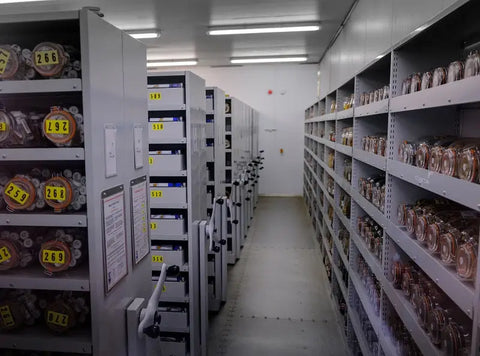
Which Is The Longest Storing Seeds?
Beans are among the longest-storing seeds that can germinate and sprout after being stored in the ideal condition for a century. But they are not the oldest seeds ever recorded in the document of plant history. The following records of the oldest plant seeds in human history may amaze you.
- According to National Geographic, some 32,000-year-old seeds of a local plant in Siberia were revived and incubated. It had been buried under the ice near the Kolyma River bank since the Ice Age
- Two thousand years is the age of the oldest palm seed. They found the nut in the dry and cool area of Masada. Then, scientists germinated it successfully.
- A 700-year-old lotus seed collected from a dry lakebed in China also sprouted into a mature flower.
- The study of the NARO Genebank Project showed that many popular vegetable seeds remain viable for dozens of years or over a century. For example, the longevity is 130 years for cucumber seeds, 70 years for buckwheat, 30 years for tomato seeds, 20 years for wheat, and 15 years for soybean seeds.
Nature stored these seeds in the best conditions. These examples proved that humans could save plant seeds as long as they want if they can create the most suitable environment for storage. Humans found the three oldest kernels in cold, dry, and airtight conditions.
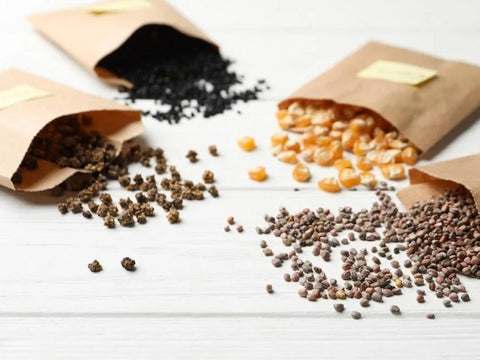
Conditions For The Longest Storing Seed
From the four examples above, we can assume that standard storage conditions can keep seeds alive for many years. But each seed variety requires a unique storage environment. Farmers and gardeners can review the following recommended conditions for longer seed storage for cultivation.
Temperature
Farmers and gardeners should keep rinsed and dried seeds in cool or freezing places, such as a closet, basement, fridge, or freezer. Based on the duration you want to store seeds, set the temperature for the fridge. For example:
- Around 26°C for short-term storage;
- 0°C for medium-term storage.
- -10°C for long-term storage
Besides, the seed content shrinks and dilates repeatedly in fluctuating coldness. So, the temperature must be stable. It can damage the seed content and make the seed die. Therefore, an unchangeable and sub-zero temperature is crucial for the longest-storing seeds.
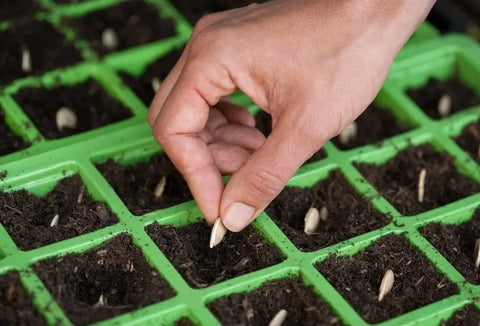
Humidity
You ought to store dry seeds in entirely dry places. Moisture can result in mold, mites, bacteria, and fungus problems in pips. Only one infected subject can affect your batch of seed partially or totally, especially for short-term lots. Germs are active between 15°C and 50°C and can destroy the nut if it is not completely dry.
Light
You ought to save nuts and grains in dark places, such as a closed and airtight container, barrel, black plastic bag, etc. Many seeds can germinate when exposed to light and air, even though the moisture level in the air is low. Therefore, you had better prevent the light from stimulating seeds to sprout during the storage time.
Seed Content
Seed content also affects the storage duration because of its content. Some seeds have a high proportion of oil, but others are low in seed oil. Therefore, the storage longevity is also not similar. Check out some popular seasonal seeds with the longest-storing longevity here.
|
Seeds To Long-Term Storage |
Seeds To Medium Term Storage |
Seeds For Short-Term Storage |
|
Cucumber, radish, lettuce, beet, cabbage, broccoli, cauliflower, eggplant, kale, spinach, pumpkin, celery |
Carrots, peas, beans, Asian greens, tomatoes, squash, watermelon |
Okra, parsley, onion, pepper, parsnip, sweet corn |
Not only moisture content but the oil content in seeds also decrease the storage longevity of seeds. You should not save seeds high in oil for too long. On the contrary, you can store seeds low in the oil longer.
Most vegetable seeds like corn, bean, and squash can remain alive and viable for three years. Therefore, farmers should not store too many grains for too long. Try to use them up within the validity period.
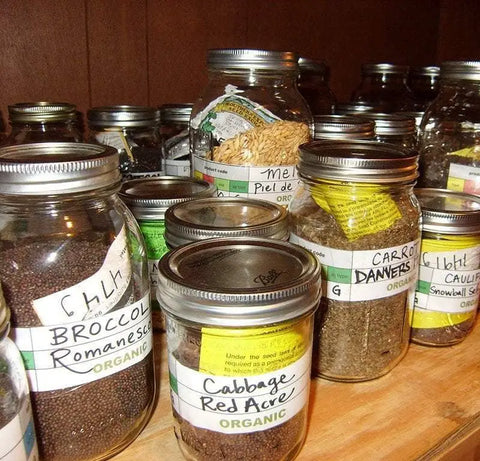
Tips For The Longest Storing Seeds At Home
When you buy too many seasonal seeds from The Rike and cannot use all of them, you can store them directly. When you collect seeds from your gardens, here are some tips for the longest-storing seeds.
- Let seed air-dry for 7 to 10 days if you do not have a dehydrator and the weather is dry, sunny, and windy. Make sure all nuts in the batch are dry before being stored totally.
- Divide them into a small batch of seeds. Put seeds in an airtight container, such as a zip bag or a glass jar with tight-fitting lids.
- Use four facial tissues to wrap two tablespoons of powdered milk to make a safe DIY desiccant packet for nut storage.
- Put seed packages and containers in a dry, cool, and dark place. Leave them in the freezers for the longest storing seeds if you don’t intend to use them early in the next year's season.
- Have a label for each package of seeds, clarifying the name, date, and expiry. Test the germination rate and throw away seeds that are expired and unviable.
- Before planting, take the seed packages out of the freezer if you had frozen seeds for medium and long-term storage. Leave the seeds out in the air and let them warm until they reach room temperature.
Tips for home seed storage are helpful for many farmers. They would like to store the strongest seeds of the previous bumper crops for the following cultivating seasons.
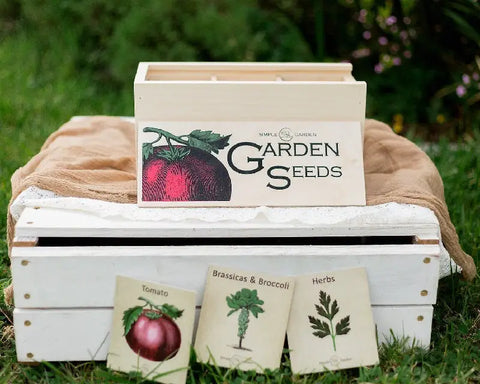
Conclusion
You can apply these tips and ideal conditions for the longest storing seeds which you bought from The Rike or select from your crops. Tomato, cucumber, radish, and lots of vegetables can be grown with frozen seeds after years as long as they are not rotten. The key to storing seeds is keeping them away from warmness, moisture, oxygen, and light which are the ideal condition for pests, fungi, and bacteria to develop or for seeds to sprout.





Leave a comment